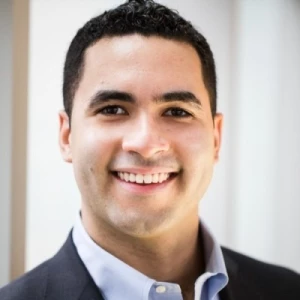I have my Mckinsey interview very soon but I take some time to think thoroughly about my framework. I also take my time answering the math part of cases. How much time is acceptable per question?

how much time should I spend developing a framework during an interview and how much time is acceptable to spend doing math calculations?


Hi there,
Congrats on landing an interview! Some helpful advice I received early on while I was preparing for my case interviews is that you tend to have more license at the start of the interview to take time to gather your thoughts versus later parts of the case.
It is understood at the start of the case that you are gathering and processing information and might not have the necessary context, hence warranting more time to think thoroughly. However, as time goes on in the case, the expectations also increase as you have gained greater context and have had more time to structure your thinking.
Agree with what others have said about keeping it <2 minutes at the start of the case after you ask your clarifying questions. Take the time you need to structure your thoughts and return to your framework as you test your hypothesis.
For mental math, of course it is ideal to answer as fast and accurately as you can, but sometimes that can be hard to do when under pressure. Something actionable you can try is advice I shared in another post here:
One strategy that I've found helpful is to set up the structure of the calculations you want to do, tell the interviewer the correct numbers you would use with examples, and THEN ask if you can round the numbers. For example you could say:
- It sounds like we want to calculate Revenue. I can do that by multiplying price per unit by number of units sold
- To do that calculation, I would need to multiply the price of $10.99 by the 149,000 units sold
- To simplify the math while getting us to an approximately correct answer, I would want to round the price to $11. I would also round the number of units sold to 150,000 to start, before deducting 1,000 units multiplied by $11 or $11,000 from the final answer to find revenue at a price of $11 for 149,000 units
- Does this approach make sense to you and are you aligned with me rounding the numbers this way?
With the above approach, you do 2 very important things:
- You show the interviewer that you've broken the math down and you conceptually understand how to calculate the correct answer. This helps build their confidence in you because your reasoning is easier to follow and understand
- You've broken the math down into easier to calculate steps for yourself and you've given the interviewer an opportunity to give feedback (important for more complex calculations than the example above) while also asking if rounding would be appropriate
Remember that a case interview involves two-way communication; I would reframe your thinking from "how much time is acceptable" to "how can I best communicate my thinking as I problem solve in a time efficient manner".
Trying to impose arbitrary time limits add unnecessary pressure on yourself, instead, I would recommend focusing on ensuring that you communicate in a client-friendly way- this means no long silences or gaps where possible, particularly in later stages of the case.
It's appropriate to think about your framework and hypothesis in silence at the start of the case, but as the case progresses, you should try and take advantage of every opportunity to communicate your thinking (e.g., verbalize your mental math, verbalize how you are structuring your brainstorming). This helps you feel less time pressured to problem solve in your head and showcases your ability to guide others through your thinking, a key client-facing skill.
Hope this helps and all the best on your interview! Feel free to reach out if any questions

Hi there,
Here’s a practical guide for managing your time during a McKinsey interview:
1. Developing a Framework
• Aim to spend 1–2 minutes outlining your framework.
• Clearly communicate your thought process as you structure the problem. McKinsey values logical, MECE frameworks, but it doesn’t have to be overly detailed—focus on the key drivers and prioritize simplicity.
• If you need more time to think, state, “Let me take a moment to organize my thoughts,” and then proceed confidently.
2. Performing Math Calculations
• Spend 1–2 minutes per calculation, depending on complexity.
• Explain your approach as you work through the math (e.g., “I’ll calculate X first, then multiply by Y”).
• If you feel stuck, ask clarifying questions or break the problem into smaller steps to avoid getting lost.
3. General Tips
• Time Per Question: On average, aim to spend 3–5 minutes per question, including structuring, math, and insights.
• Communicate as You Think: Verbalizing your approach helps the interviewer follow your logic and shows you’re in control of the problem, even if you take a bit longer.
• Prioritize Accuracy Over Speed: It’s better to be clear and accurate than to rush and make mistakes.
Good luck!
Best,
Evelina

Hey there,
The standard time is around 2 minutes, and I recommend you should aim to do your structure in this time as much as possible. However, take the time you need to deliver a good structure! It is more important to deliver a good structure than it is to do it quickly. There is no evaluation criteria for the length of time you took to structure or do maths questions. You're evaluated based on what you say. Please remember this....
With McKinsey cases, you are expected and allowed to take time in between each question asked, and that can be ~2minutes for structuring, and around 1-2minutes for exhibit analysis and quantitative analysis.
Having said all this, however, i recommend you take as much time as you need to deliver your best answer. I often tell my coachees, if after 2 minutes you still don't feel ready - then just tell the interviewer that you are wrapping up and will be with them in a moment and then take the time you need to get a better answer. Interviewers will not give you grace for being fast with taking time do prepare and then not giving a solid answer
All the best

Hi,
To draft a framework, it should take you 60-90 seconds. When preparing for the interview, it's better to first focus on developing a MECE, customized and hypothesis driven framework without time pressure. When you feel comfortable developing frameworks, start to accelerate the process. :)
For math calculations, the time you should take is very much depending on the difficulty of the calculations. I advice to clearly communicate what you want to calculate and that you will take some seconds to do the calculations. Do sufficient quick math drills you feel comfortable to perform under pressure.
Feel free to schedule a free 15m intro call.
Mattijs

Hey there,
Thanks for this question which is crucial and popping up ever so often on PrepLounge.
There is a big misunderstanding and difference between a framework derived for McKinsey vs. a framework created for other consulting interviews.
At the core, McKinsey wants to see creative ideas communicated in a structured manner, the more exhaustive the better.
Your goal should be to come up with a tailored and creative answer that fits the question. The framework should - broadly speaking - follow these three characteristics:
- Broad
- Deep
- Insightful
You would need to go into detail and qualify your answer with practical examples and more details. The more concrete the better.
To come up with the framework you have 1-2 minutes (2 minutes is kind of a soft limit). Then, feel free to take up to 6-8 minutes to present your structure, your qualification, and hypotheses. This is due to the interviewer-led format that McK employs. The interviewer might even ask 'what else' if you
- haven't gone broad (covered all essential areas) or deep enough (provided concrete examples)
- did not explain your ideas well enough for them to stand out (again, you have time here)
The firm wants to see exhaustive and creative approaches to specific problems, which more often than not do not fit into the classic case interview frameworks that were en vogue 10 years ago...
Again, this only applies if everything you say
- adds value to the problem analysis
- is MECE
- is well qualified
- includes a detailed discussion of your hypotheses at the end
Summing up the core differences:
- You have more time to think about it
- You have more time to lead the interviewer through your structure
- You need to go wide and deep to create an exhaustive and creative structure, whereas in BCG/Bain you rather need to be focused and quickly zero in on the key points where the problem of the case is most likely buried
- Questions tend to be more creative and not suitable for classic frameworks, especially on the lower levels of the framework
- You do not need to drill through your framework in a McKinsey case. You can provide an indication of where you would move your analysis, however, the interviewer will direct the case going forward
If you are interested to learn more, I have written a detailed insider perspective on the McKinsey case interview here: https://www.preplounge.com/en/mckinsey-interview
Let me know if you have more questions!
Cheers,
Florian

Develop your framework in < 2 min and present it in about the same time. If you have a lot of detail and strong hypotheses, it's okay to go over a bit on the presentation. For mental math, do it as fast as possible, but don't rush and make a ton of errors. Simple math should be pretty instantaneous.

hey there!
For developing a framework, it's generally recommended to take 1 to 1.5 minutes to outline your thoughts. Taking longer might make you seem indecisive, while rushing could lead to missing key aspects. The goal is to structure your response clearly and logically while maintaining a conversational pace with the interviewer.
For math calculations, spending around 1 to 1.5 minutes per calculation step is usually acceptable. If it's a more complex calculation, briefly explaining your approach before diving into the numbers can buy you some extra time while keeping the interviewer engaged.
In both cases, communicating your thought process aloud helps ensure the interviewer follows your logic and provides guidance if needed.
Alessa

Hey,
Up to 2 minutes for developing your structure and 1-2 minutes per calculation, depending on its complexity.
Remember, that since now most of case interviews are conducted online, you don't have to write out your structure completely, e.g. if you're short on time, you can present some parts of your structure with words on the go.
Also, before doing any calculations, make sure you present your approach to the interviewer first, in order to avoid taking unnecessary extra steps.
Good luck,
Nick














